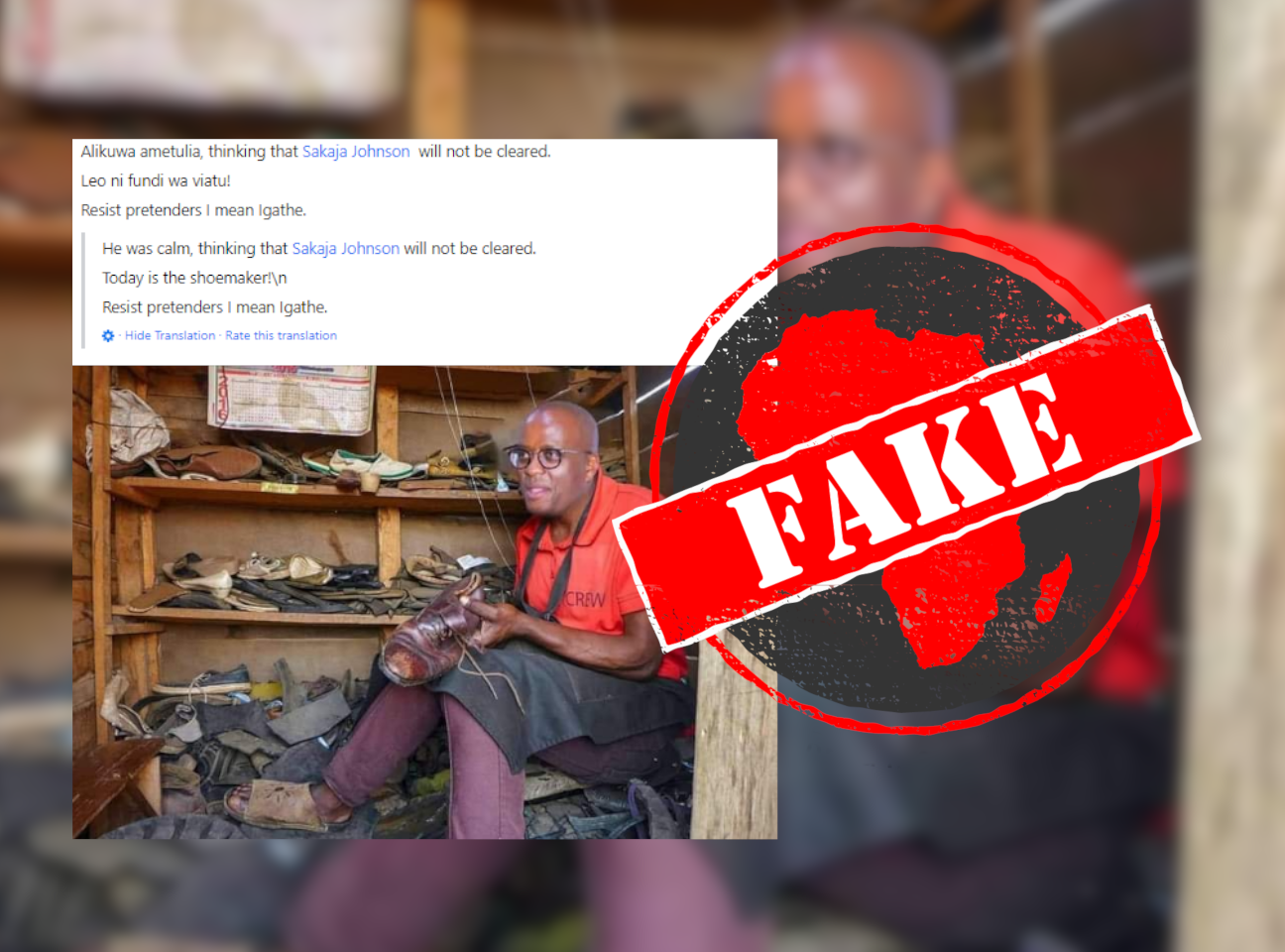An image widely shared on Facebook shows a man who resembles Kenyan politician and businessperson Polycarp Igathe sitting inside a small shoemaker’s shop. He is holding an old brown shoe.
The image’s captions claim it shows Igathe mending shoes as part of his unsuccessful campaign for the governorship of Nairobi, Kenya’s capital, in the 9 August 2022 elections.
It started doing the rounds on Facebook in June, when Igathe was snapped doing other odd jobs, seemingly to identify with the city’s working people as he sought their votes.
He was photographed serving drinks in a bar, cooking in a kitchen, reading news and singing on radio, washing a car, cleaning a public toilet, buying fresh tilapia, and shopping in a supermarket and in open air markets.
But does the image show him working as a shoemaker, as the captions claim? We checked.

Photo taken in DRC in 2019
The image has been doctored. A TinEye reverse image search led us to the original, a stock photo that’s been online for years.
We found it on the Alamy stock photo website, dated 5 March 2019. The man looks nothing like Igathe.
Its caption reads: “Stino Muhindo attaches a piece of old tire to the bottom of a shoe to create a new sole in Kirumba, Democratic Republic of Congo. Muhindo gathers old car tires from local garage owners and uses them to repair shoes in his shop, which is located in the city’s Buhimba neighbourhood.”
Igathe’s face has been edited onto a 2019 photo of a man repairing shoes in the Democratic Republic of the Congo.
Republish our content for free
For publishers: what to do if your post is rated false
A fact-checker has rated your Facebook or Instagram post as “false”, “altered”, “partly false” or “missing context”. This could have serious consequences. What do you do?
Click on our guide for the steps you should follow.
Publishers guideAfrica Check teams up with Facebook
Africa Check is a partner in Meta's third-party fact-checking programme to help stop the spread of false information on social media.
The content we rate as “false” will be downgraded on Facebook and Instagram. This means fewer people will see it.
You can also help identify false information on Facebook. This guide explains how.


Add new comment